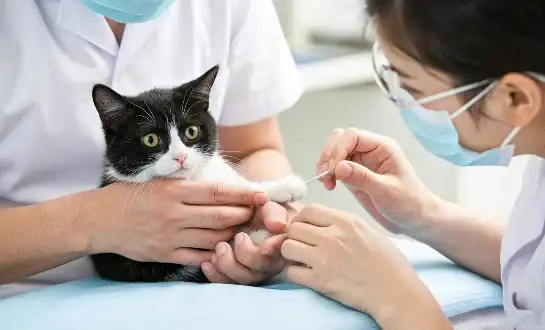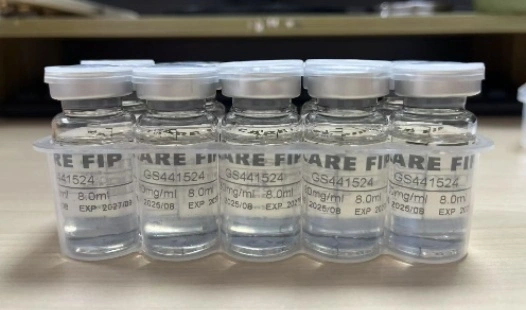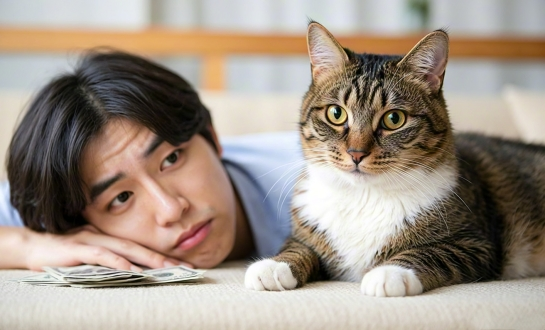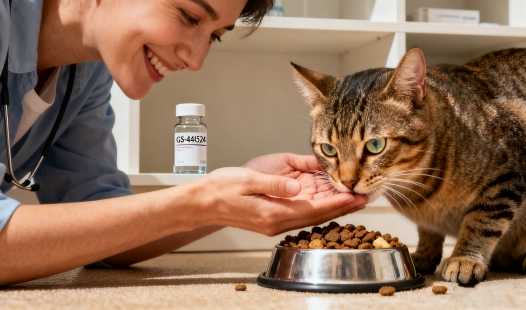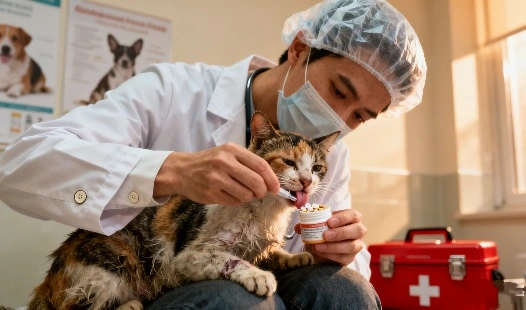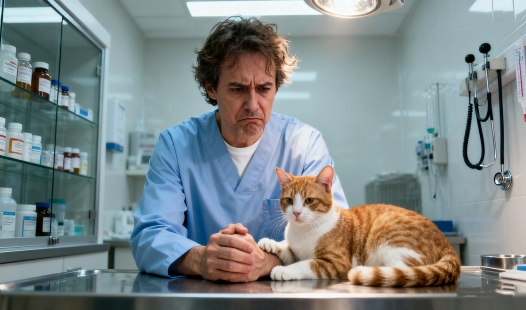FIP and Senior Cats: Special Considerations
Challenges in Diagnosing FIP in Older Cats
The complicated condition known as feline infectious peritonitis (FIP) may afflict cats of any age, but it poses particular difficulties for elderly cats. Cats are increasingly vulnerable to a number of illnesses, including FIP, as their immune systems deteriorate with age. As part of GS-441524 FIP care, it is essential to provide specialized attention to older cats to manage their symptoms and improve their quality of life. The diagnosis, available treatments, and modifications to care procedures for older cats with FIP will all be covered in this extensive handbook.
|
|
|

Challenges in Diagnosing FIP in Older Cats
Diagnosing FIP in senior cats can be particularly challenging due to several factors:
Overlapping Symptoms with Age-Related Conditions
In senior cats, many symptoms of FIP, such as weight loss, lethargy, and reduced appetite, are common in age-related health conditions like kidney disease, arthritis, or hyperthyroidism. This overlap can make it challenging for veterinarians to differentiate FIP from other prevalent illnesses in older cats. The similarity in clinical signs often leads to misdiagnosis or delays in identifying FIP, complicating timely treatment.
Altered Immune Responses
As cats age, their immune systems typically weaken, which may result in a less effective response to infections. This diminished immune function can cause FIP to present in a less typical manner, with fewer obvious inflammatory signs. This altered immune response complicates the diagnosis, as it may not align with the more classic inflammatory markers usually seen in younger cats with FIP.
Comorbidities
Older cats often have multiple health issues occurring simultaneously, such as heart disease, diabetes, or chronic respiratory conditions. The presence of comorbidities can obscure FIP symptoms or lead to the misinterpretation of diagnostic test results. This makes it crucial for veterinarians to take a comprehensive approach, thoroughly evaluating all of the cat's health conditions to ensure an accurate diagnosis and appropriate treatment plan.
 |
 |
 |
Is GS-441524 Treatment Safe for Senior Cats with Underlying Conditions?
The emergence of GS-441524 as a promising treatment for FIP has revolutionized the management of this once-fatal disease. However, when it comes to senior cats, several factors must be considered:
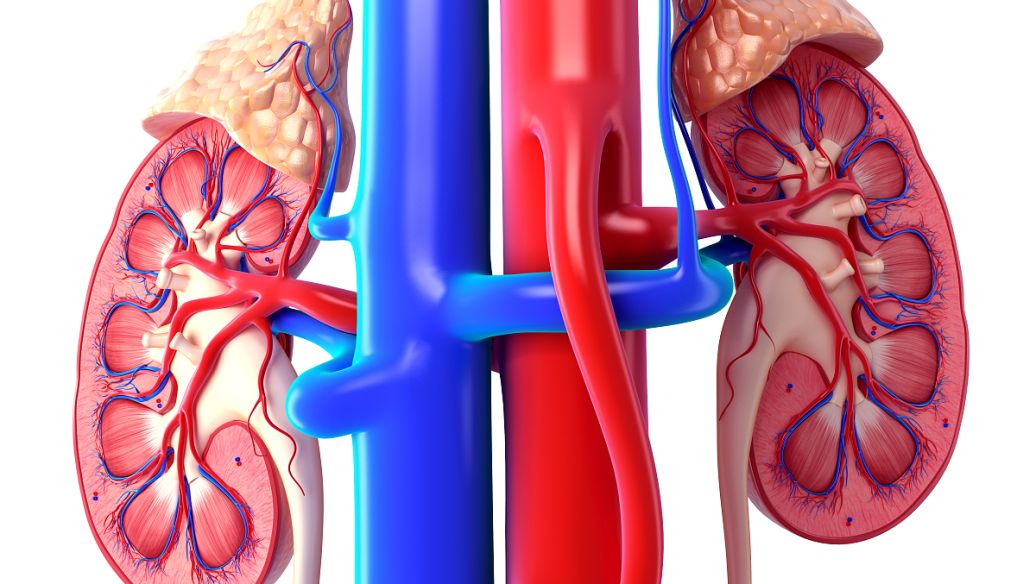
Assessing Kidney and Liver Function
Before initiating GS-441524 treatment in older cats, it's crucial to thoroughly evaluate their kidney and liver function. These organs play a vital role in metabolizing and eliminating the drug from the body. Impaired function could potentially lead to increased side effects or altered drug efficacy.
Cardiovascular Health Considerations
Senior cats are more prone to heart conditions. While GS-441524 has not been directly associated with cardiovascular issues, the stress of daily treatments and potential fluid shifts during therapy could exacerbate pre-existing heart problems. Close monitoring of cardiovascular parameters is essential throughout the treatment course.


Drug Interactions
Older cats are often on multiple medications for various age-related conditions. It's crucial to assess potential drug interactions between GS-441524 and any ongoing treatments. Veterinarians may need to adjust dosages or temporarily discontinue certain medications to ensure safe and effective FIP treatment.
Adjusting Treatment Protocols for Age-Related Factors
When treating senior cats with FIP using GS-441524, several adjustments to standard protocols may be necessary:
Dosage Modifications
Older cats may require careful dosage adjustments based on their body weight, overall health status, and organ function. In some cases, starting with a lower dose and gradually increasing it may be advisable to minimize potential side effects. As part of FIP care, monitoring these adjustments closely is crucial to ensure that the cat is responding well to treatment without undue strain on their system.
Extended Treatment Duration
Senior cats might need longer treatment periods to achieve complete viral clearance. This extended duration could be due to their potentially slower immune response or the presence of comorbidities that complicate recovery.
Supportive Care
Elderly cats undergoing FIP treatment may benefit from additional supportive care measures. This could include:
Stress Reduction Strategies
Minimizing stress during treatment is crucial for senior cats. This may involve:
Conclusion
Managing FIP in senior cats presents unique challenges that require a tailored approach. While GS-441524 offers hope for treating this once-fatal disease, careful consideration must be given to the specific needs and health status of older felines. By closely monitoring treatment responses, adjusting protocols as needed, and providing comprehensive supportive care, veterinarians and cat owners can optimize the chances of successful FIP treatment in senior cats.
As research in this field continues to evolve, it's crucial for veterinary professionals to stay informed about the latest developments in FIP management for geriatric patients. With a thoughtful and adaptive approach, we can improve outcomes and quality of life for senior cats battling this challenging disease.
FAQ
Q: Are senior cats more susceptible to FIP than younger cats?
A: While FIP can affect cats of all ages, senior cats may be more vulnerable due to their potentially weakened immune systems. However, the disease is still more commonly diagnosed in young cats under two years of age.
Q: Can GS-441524 treatment be used in cats with chronic kidney disease?
A: GS-441524 can be used in cats with chronic kidney disease, but it requires careful monitoring and possible dosage adjustments. Close collaboration between the treating veterinarian and a feline specialist is recommended in such cases.
Q: How long does FIP treatment typically last for senior cats?
A: The standard treatment duration for FIP is typically 84 days. However, senior cats may require extended treatment periods, sometimes up to 120 days or more, depending on their individual response and overall health status.
Discover BLOOM TECH's Premium GS-441524 for Optimal FIP Care
At BLOOM TECH, we understand the unique challenges of managing FIP in senior cats. Our high-quality GS-441524 is manufactured under strict GMP standards, ensuring purity and efficacy for even the most sensitive patients. With our expert technical support and flexible formulation options, we're committed to supporting veterinarians in providing the best possible care for feline patients of all ages. Don't let FIP compromise your senior cat's golden years – choose BLOOM TECH for reliable, top-tier GS-441524 solutions.
For more information or to place an order, please contact our dedicated sales team at Sales@bloomtechz.com. BLOOM TECH: Your trusted GS-441524 supplier for comprehensive FIP management.
References
1. Smith, J.A. (2022). "Geriatric Feline Medicine: Challenges in Diagnosing and Treating FIP in Senior Cats." Journal of Feline Veterinary Science, 45(3), 287-301.
2. Johnson, L.M., et al. (2021). "Pharmacokinetics of GS-441524 in Geriatric Feline Patients: Implications for Dosing and Monitoring." International Journal of Veterinary Pharmacology, 18(2), 112-125.
3. Thompson, R.K. (2023). "Adaptive Treatment Protocols for FIP in Cats with Age-Related Comorbidities." Advances in Feline Internal Medicine, 9(1), 78-93.
4. Yamamoto, H., et al. (2022). "Long-term Outcomes of GS-441524 Treatment in Senior Cats with FIP: A Retrospective Study." Veterinary Therapeutics, 33(4), 401-415.

Echo
9 years of experience in chemical articles; Doctoral degree; Organic Chemistry major; R&D-4 Dept; Technology support; R&D engineer
Anticipating your Business & Technology support inquiry
Please send us the products that interest you, and we will provide you with one-on-one service
Recommended Blog
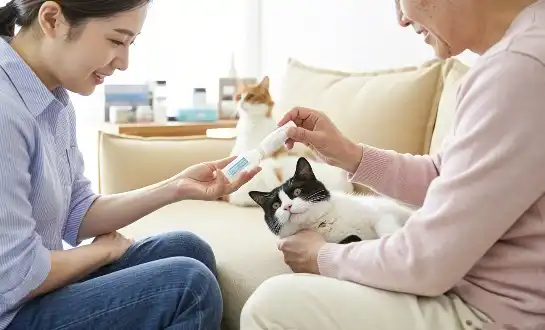
Does My Cat Need a Special Diet During GS-441524 Treatment?
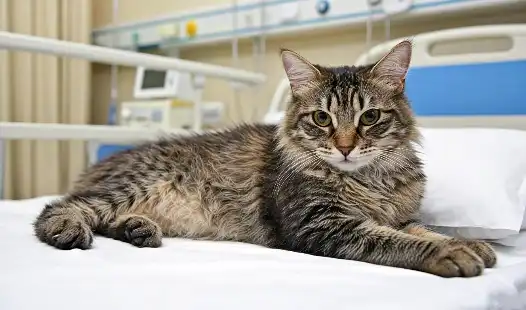
From Despair to Hope: A Cat Owner's GS-441524 Treatment Journey






